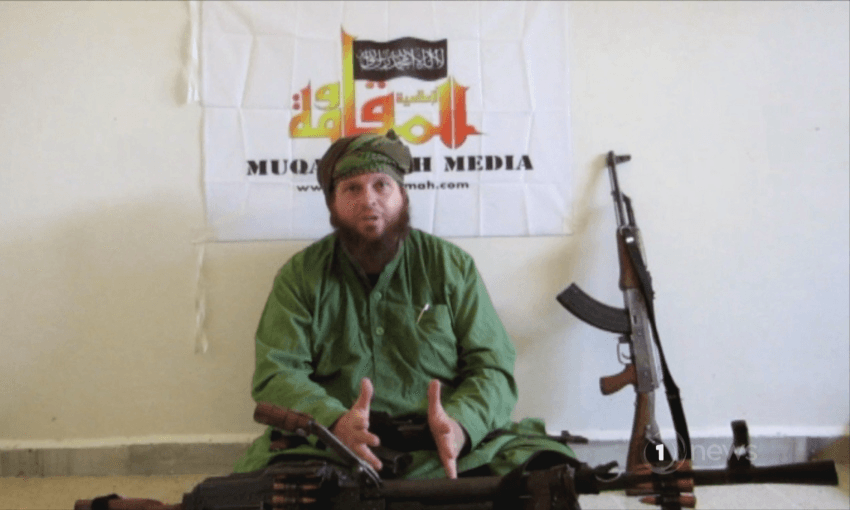Andrew Little’s terrorism suppression bill is facing two very different forms of resistance, from National and from the Greens. What is the legislation, and why is it controversial?
What this then?
The Terrorism Suppression (Control Orders) Bill, introduced to parliament by the justice minister, Andrew Little, last Wednesday, seeks to introduce “a civil regime of control orders to manage and monitor a small number of people who are returning to, or who have arrived in, New Zealand after having engaged in terrorism-related activities overseas”.
That control order regime is intended to “target individuals who pose a risk of engaging in further terrorism-related activities and for whom a criminal prosecution for their past terrorism-related activities overseas is not viable because of the significant difficulties associated with securing evidence from overseas jurisdictions.”
Police would be empowered to monitor those considered “high risk” for terrorism after being involved in overseas terrorist activity. The level of these control orders would vary case-by-case, and would be imposed by the High Court. They could include detainment, electronic monitoring, police check-ups and impose restrictions like who they’re able to contact and their internet access.
Why now?
The Bill was developed in response to the situation in Syria. With the withdrawal of US troops from northern Syria increasing tensions and Turkish forces moving in, there is an increased likelihood that ISIS fighters will return to their home countries.
Are there many Kiwi ISIS members?
Infamous Hamilton man-turned ISIS member the so-called “bumbling Jihadi” Mark Taylor has been trying to head home for a while now after surrendering to Kurdish forces in March. He’s still a citizen here, but the Labour-led government has said they have no plans to assist him in getting to New Zealand.
So this bill would definitely cover him.
Maybe not. Taylor insists he was merely an ISIS guard and hasn’t committed any atrocities, which could prove tricky.
Law professor Andrew Geddis told TVNZ that under current counter-terrorism laws, Taylor might be able to walk free.
“What we know publicly of Mr Taylor is that he didn’t commit any actual terrorist offences. He looks like he was just kind of a guard around fuel dumps and so on, and so whether any provisions of the Terrorism Suppression Act will actually catch him is just questionable,” Geddis said.
Is it proportionate?
Of course it is – according to Andrew Little.
“The Bill is a proportionate response to managing risk, and is designed to prevent terrorism and support de-radicalisation in a way that is consistent with New Zealand’s human rights laws,” he said.
“The more serious the risk, the more restrictive the conditions are likely to be.”
But not according to others?
The bill has attracted criticism from human rights group Amnesty International and the Green Party for what they believe to be breaches of human rights.
Green MP Golriz Ghahraman said the bill amounted to “dog-whistling”. She is concerned that it draws on other nations’ characterisations of terrorism, and so “expands New Zealand’s definition of terror to include convictions anywhere in the world or deportation for terror anywhere in the world.”
She told Newshub Nation that this has the potential to include people who’ve been deported or convicted in places where feminism or environmental activism are considered terrorism.
Amnesty International’s Advocacy and Policy Manager Annaliese Johnston said the definitions of terrorism are too varied worldwide. “We often see the word ‘terrorism’ being applied broadly by oppressive regimes to detain innocent people who’re simply rallying for a better life.”
Is the Green Party’s support needed?
Yes. Unless the National Party backs it.
They’re a tough-on-crime party, so surely they back it?
Not exactly. National supported the bill at its first reading, but seeks several changes to the legislation. They want tougher penalties including an increase on the term of imprisonment to five years, increasing the duration of the control orders to more than two years, and lower the age limit for control orders to 14 years and older.
Simon Bridges said there was evidence that young people had been radicalised in Australia, and the bill needed to take this into account, or it wouldn’t get National party backing.
What did Little say to that?
How did National respond?
Rejecting their proposed changes without even a meeting was “arrogant and could put lives at risk”, said Bridges.
What next?
Labour will need to get either National or the Greens onside to get the bill through a second reading, so concessions will be required one way or another. A meeting with Bridges seems likely this week.





